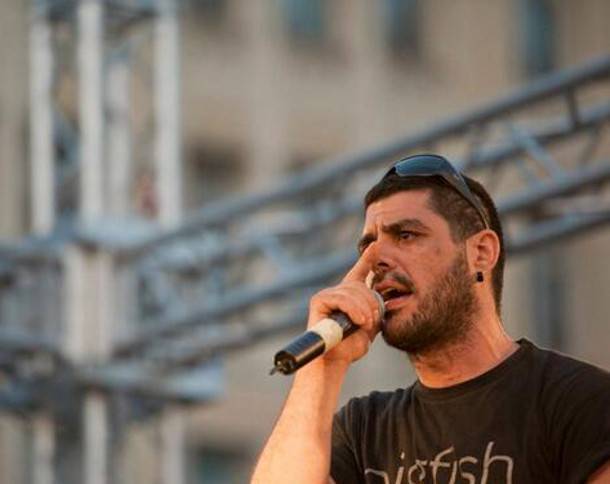Facing yet another set of mass employee layoffs and cuts to public sector benefits, tens of thousands of public workers took to the streets in Greece’s two largest cities on Wednesday, part of a broader series of labour union strikes and protests that began earlier this week.
Joining secondary school teachers who began a five-day strike of their own on Monday, workers from the healthcare, judicial, municipal, journalism, and public transportation sectors walked of the job to initiate a planned 48-hour strike just days before high-level officials from the European Troika — which includes the European Union, European Central Bank and International Monetary Fund — arrive in Athens to assess the status of the austerity reforms they imposed on the Greek economy in exchange for financial “assistance.”
Political tensions were especially high on Wednesday, following news that left-wing artist and activist — Pavlos Fyssas, well known for his hip-hop music and anti-fascist leanings — was murdered on Tuesday. The alleged assailant, according to reports, is a member of Greece’s neo-Nazi party Golden Dawn. As the Guardian’s Helena Smith reports:
The alleged murder of [Fyssas] by a self-confessed member of the far-right Golden Dawn party has sent political tensions soaring in Greece.
As the crisis-hit country was brought to a standstill by striking workers on Wednesday, police raided several Golden Dawn offices in Athens after the fatal stabbing late on Tuesday of 34-year-old Pavlos Fyssas, a well-known activist on Greece’s vibrant anti-fascist scene.
The raids came within hours of a 45-year-old man being arrested in connection with the murder. The alleged perpetrator, who has not been named, reportedly admitted having links to the extremist group, according to police.
Fyssas, Greece’s foremost hip-hop artist who performed under the stage name Killah P, is said to have identified the culprit as he was being taken to hospital after being injured in the brawl which broke out shortly after midnight in Piraeus’s working-class district of Keratsini.
“They were his last words before he succumbed to his wounds,” said one source requesting anonymity.
The latest reforms fueling this week’s strikes include a partial-pay-suspension of 25,000 civil servants and thousands of layoffs and job-reassignments — all steps that have been designed to drastically shrink the country’s public sector workforce in exchange for the latest installment of Troika “rescue loans.”
Over 9,000 workers filled Athens’ Syntagma Square, while roughly 10,000 others were reported demonstrating in the nation’s second largest city Thessaloniki.
“We want to tell the government enough is enough,” a 54-year-old teacher, Vasiliki Angelatou, told Reuters. “They are firing indiscriminately. We’ve reached our limits.”
“A long, onerous and painful winter has begun,” public sector union ADEDY said in a statement. “The truth is that with every troika visit, our national dignity is destroyed. The economy and society are ruined.”
“Austerities of increasing severities have been being applied in some European countries and we are not seeing any serious or sustained recoveries in these economies,” James Meadway, a senior economist at the New Economics Foundation in London, told Al Jazeera Wednesday.
“Precisely because austerity is the thing that drives recession,” he said. “You are setting up this vicious circle of decline in which Greece is very much trapped into.”
Jacob Chamberlain is a staff writer with Common Dreams, where this article was originally published. It is reprinted here with permission.



